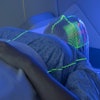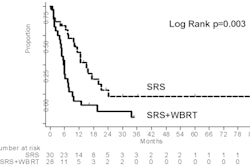Treatment with bisphosphonates may prevent radiation-induced leukemia, according to research presented this week at the annual meeting of the American Association for Cancer Research (AACR) in Denver.
Bisphosphonates have emerged as a potential chemopreventive agent due to earlier data that suggest they prevent bone metastasis and because they have an ability to remove uranium from the body. The compounds studied included ethane-1-hydroxy-1,1-bisphosphonate (EHBP) and carballylic amido bis phosphonic acid (CAPBP).
Alexandra Miller, Ph.D., a senior scientist at the Armed Forces Radiobiology Research Institute (AFRRI) in Bethesda, MD, told AACR session attendees that she and her colleagues irradiated laboratory mice with a radiation dose of 3.5 Gy. Mice that did not receive any bisphosphonate developed leukemia. However, 35% of mice treated with six doses of CAPBP did not develop leukemia, and 25% of those treated with six doses of EHBP also remained healthy.
The research is designed to help military and space agency personnel who are likely to be exposed to radiation, but it may also prove beneficial for civilians, according to Miller.
The AFRRI collaborates with other government facilities, academic institutions, and civilian laboratories in the U.S. and other countries to research the biological effects of ionizing radiation. In addition, it provides medical training and emergency response to manage incidents related to radiation exposure.
Related Reading
Bisphosphonates inhibit cancer in animal model, March 6, 2007
Copyright © 2009 AuntMinnie.com



















